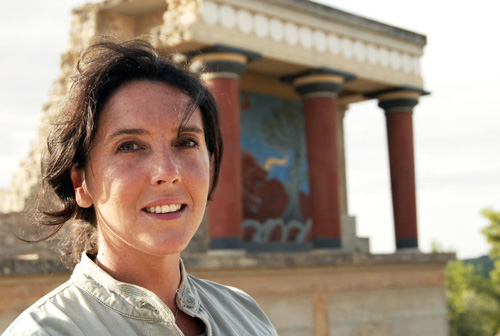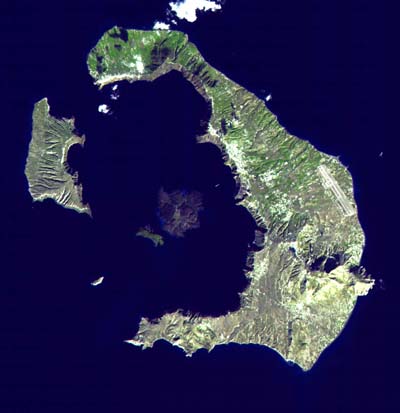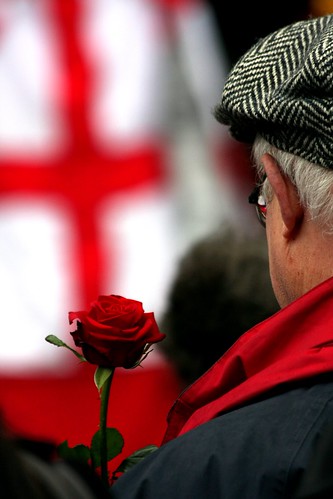 Historian Bettany Hughes will star in Timewatch Special ‘Atlantis: The Evidence’, to premire on BBC Two next week. She’ll be tracing the origins of the Atlantis myth and presenting evidence that the Thera eruption inspired Plato’s account of the mystical land.
Historian Bettany Hughes will star in Timewatch Special ‘Atlantis: The Evidence’, to premire on BBC Two next week. She’ll be tracing the origins of the Atlantis myth and presenting evidence that the Thera eruption inspired Plato’s account of the mystical land.
2,400 years ago Greek philosopher Plato wrote of an ancient island civilisation of unparalleled wealth and splendour, which was struck by earthquakes and floods and was swallowed up by the sea in one grievous day and night.
But afterwards there occurred violent earthquakes and floods; and in a single day and night of misfortune all your warlike men in a body sank into the earth, and the island of Atlantis in like manner disappeared in the depths of the sea. For which reason the sea in those parts is impassable and impenetrable, because there is a shoal of mud in the way; and this was caused by the subsidence of the island. (Plato, as translated by Benjamin Jowett)
Atlantis has captured minds and imaginations like no other legendary land. Scores of mavericks, treasure-hunters and fantasists have devoted their lives to finding this lost world (see possible location on Google Earth). Historians and scholars have searched and debated where the real roots of the myth lie for centuries.
Bettany Hughes is among a growing number of experts who believe Plato’s story was inspired by a real historical event the eruption in the Bronze Age of a massive volcano on the Aegean island of Thera, better known to British tourists as Santorini. It was this event which wiped out one of Europe’s first civilisations in a single night.
 Located between Crete and mainland Greece, Thera supported a thriving civilisation that reached its peak between 2000 and 1600 BC. Thera’s capital Akrotiri had its own navel fleet and many trade connections across the Aegean and Near East. Its artists painted beautiful frescoes as far as the Hyksos capital in Egypt. But the Minoan civilization – named after legendary King Minos – came to an abrupt endwhen Akrotiri was devastated by earthquakes. Shortly after a massive volcanic eruption occurred, burying the city.
Located between Crete and mainland Greece, Thera supported a thriving civilisation that reached its peak between 2000 and 1600 BC. Thera’s capital Akrotiri had its own navel fleet and many trade connections across the Aegean and Near East. Its artists painted beautiful frescoes as far as the Hyksos capital in Egypt. But the Minoan civilization – named after legendary King Minos – came to an abrupt endwhen Akrotiri was devastated by earthquakes. Shortly after a massive volcanic eruption occurred, burying the city.
In this one-off documentary Bettany Hughes presents evidence to support the theory that the Thera Eruption inspired Plato. Recent scientific findings show the eruption was much bigger than previously thought. Archaeological excavations have revealed the remains ofBronze AgeSantorinientombed by the eruption, a frozen moment of the past. As Bettany will show in ‘Atlantis: Evidence’, the parallels between Atlantis and the Minoans are striking.
‘Atlantis: The Evidence’ airs Wednesday, June 2nd 2010 at 9pm on BBC Two
